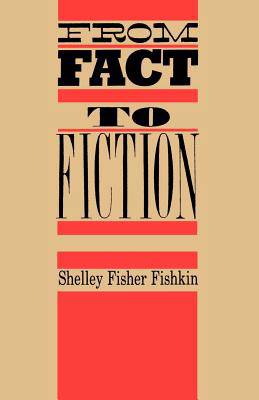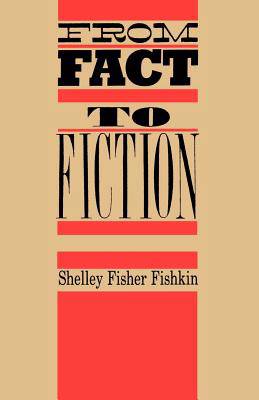
- Afhalen na 1 uur in een winkel met voorraad
- Gratis thuislevering in België vanaf € 30
- Ruim aanbod met 7 miljoen producten
- Afhalen na 1 uur in een winkel met voorraad
- Gratis thuislevering in België vanaf € 30
- Ruim aanbod met 7 miljoen producten
Zoeken
From Fact to Fiction
Journalism & Imaginative Writing in America
Shelley Fisher Fishkin
Paperback | Engels
€ 64,45
+ 128 punten
Omschrijving
Walt Whitman spent twenty-five years as a journalist before he published his first book of poems. Mark Twain pursued a twenty-year career as a journalist before the publication of his first novel. The list of great imaginative writers whose careers began in journalism includes not only Whitman and Twain, but also Theodore Dreiser, Ernest Hemingway, and John Dos Passos, among others.
Fishkin's book--the first full-length study to examine this tradition in American letters--focuses on the lives and careers of Whitman, Twain, Dreiser, Hemingway, and Dos Passos, in order to discover the roots of their greatest imaginative works and the factors that led each writer to turn to fiction. Fishkin determines that they all turned to fiction because they wished to engage their readers in ways not possible through conventional journalism, and yet not one of them found his artistic stride until he returned, in new and creative ways, to the subjects and strategies first explored as a journalist.
Fishkin weaves together threads of biography, literary criticism, literary theory, and social history to reveal the neglected role journalism has played in shaping American literary tradition since the 1830s. Her final chapter examines the attitudes toward journalism and fiction, and the division between the two in the works of such contemporary fiction writers as Norman Mailer, John Hersey, and E.L. Doctorow.
Fishkin's probing examination of the poetry and fiction that followed the newspaper and magazine work of Whitman, Twain, Dreiser, Hemingway, and Dos Passos both reveals how each writer transformed fact into art and how journalism has helped to give a distinctively American cast to American literature.
Fishkin's book--the first full-length study to examine this tradition in American letters--focuses on the lives and careers of Whitman, Twain, Dreiser, Hemingway, and Dos Passos, in order to discover the roots of their greatest imaginative works and the factors that led each writer to turn to fiction. Fishkin determines that they all turned to fiction because they wished to engage their readers in ways not possible through conventional journalism, and yet not one of them found his artistic stride until he returned, in new and creative ways, to the subjects and strategies first explored as a journalist.
Fishkin weaves together threads of biography, literary criticism, literary theory, and social history to reveal the neglected role journalism has played in shaping American literary tradition since the 1830s. Her final chapter examines the attitudes toward journalism and fiction, and the division between the two in the works of such contemporary fiction writers as Norman Mailer, John Hersey, and E.L. Doctorow.
Fishkin's probing examination of the poetry and fiction that followed the newspaper and magazine work of Whitman, Twain, Dreiser, Hemingway, and Dos Passos both reveals how each writer transformed fact into art and how journalism has helped to give a distinctively American cast to American literature.
Specificaties
Betrokkenen
- Auteur(s):
- Uitgeverij:
Inhoud
- Aantal bladzijden:
- 288
- Taal:
- Engels
Eigenschappen
- Productcode (EAN):
- 9780195206388
- Verschijningsdatum:
- 14/04/1988
- Uitvoering:
- Paperback
- Formaat:
- Trade paperback (VS)
- Afmetingen:
- 136 mm x 204 mm
- Gewicht:
- 249 g

Alleen bij Standaard Boekhandel
+ 128 punten op je klantenkaart van Standaard Boekhandel
Beoordelingen
We publiceren alleen reviews die voldoen aan de voorwaarden voor reviews. Bekijk onze voorwaarden voor reviews.







